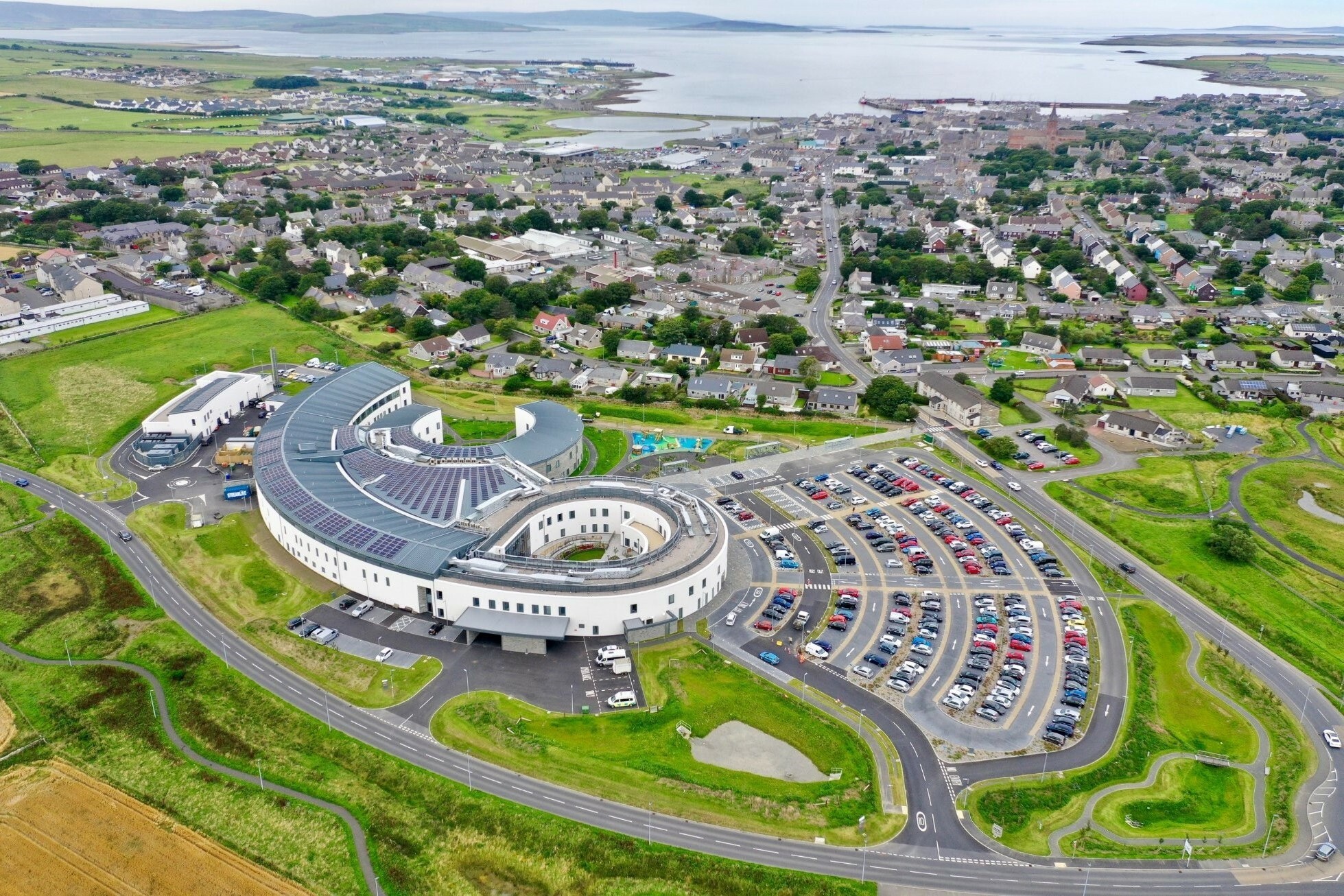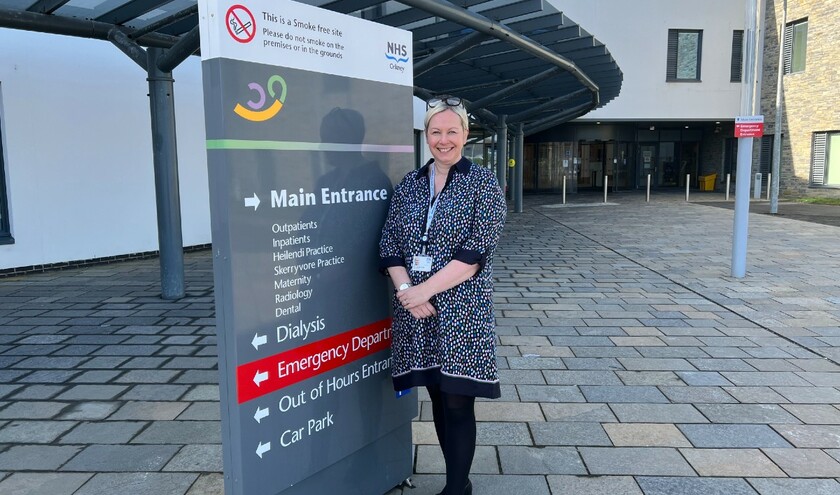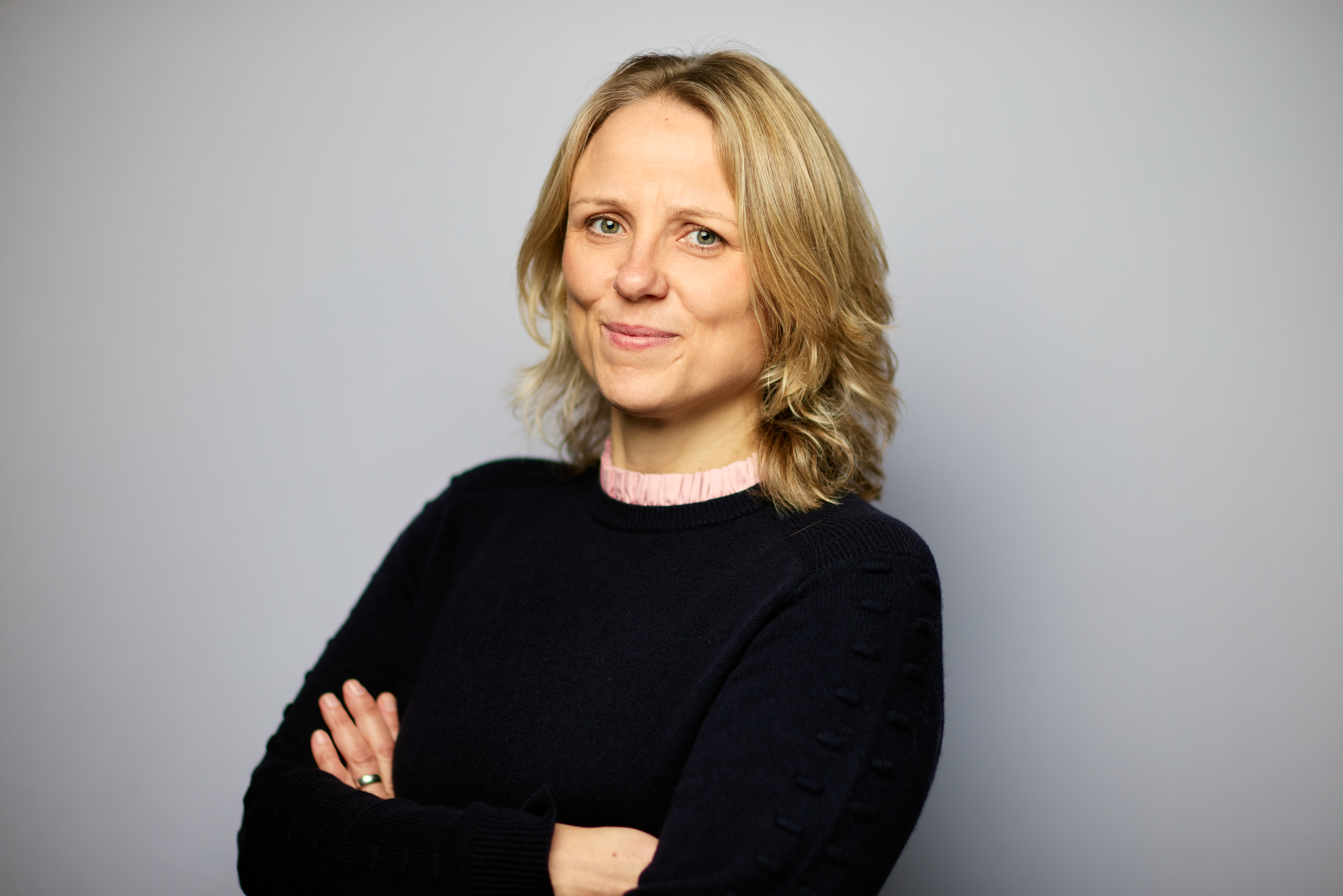NHS Orkney is the smallest territorial health board in Scotland, as well being a remote, rural island board with a population of 22,000.
The health board has a hospital (The Balfour) on the main island of Orkney, in Kirkwall, which opened in 2019 with 48 beds and two wards.
Transport challenges
NHS Orkney delivers acute services, primary care and community care to people in Orkney which comprises the mainland and around 70 islands, 20 of which are inhabited.
‘Just the sheer geography itself is a huge challenge in terms of how you run and manage a health board in an island context, from transport, recruitment to models of service delivery,' Skaife-Knight said.
‘It can take 30 minutes to more than 2 hours to travel to The Balfour by ferry for those living on our ferry-linked isles, and this requires careful thought and planning for our patients and community when it comes to arranging care and appointments.'
The health board relies on a number of partner organisations when it comes to planned care and specialist services, and has service level agreements in place, including with NHS Grampian in Aberdeen (south) where many patients travel to receive care and treatment. Having strong relationships and working across boundaries and in collaboration is a must for the health board.
‘Transport is a massive factor in Orkney as well as the reliability of ferries and planes, and obviously weather gets in the way, especially in the winter months,' Skaife-Knight said.
‘If any of our specialist care goes off island, with that comes costs of planes and helicopters, and the reality is patient travel costs have increased and add to our cost pressures.'
Demand spikes
Another unique challenge with being an island health board on the tourist route comes with the seasonal arrival of cruise liners who, with typically 6,000 passengers a week in peak season, can increase the local population by a quarter in a day.
‘That's a massive pressure and drain on our health system but is something we plan for and see as part and parcel of living and working here,' Skaife-Knight said.
Orkney will also host the Island Games later this year and that will mean a further influx of thousands of people, which requires strengthened plans and resource to be in place to ensure safety and care can be provided to all who need it.
Urgent and emergency care
In a refreshing change from other parts of the UK, pressure on urgent and emergency care is not the primary issue for NHS Orkney.
‘We see about 160 patients a week in our emergency department and very rarely have eight- or 12-hour delays,' Skaife-Knight noted.
‘We do not do corridor care. We don't have ambulances queuing up outside the front door because we haven't got the activity or pressures that lead to this.
‘We haven't got the ambulances or the demand to start with, that really isn't the issue.'
The board is at 92% against the national standard of 95% that should see patients seen, treated and either discharged or admitted within four hours of presenting to the emergency department. NHS Orkney is consistently a top three performer in Scotland for this target.
Planned care
‘Our biggest issue is planned care,' Skaife-Knight said.
‘In terms of specialist care, we have to have really strong relationships with other health boards, including Aberdeen (NHS Grampian), NHS Highland and the Golden Jubilee (National Treatment Centre), for example, which we invest time in, and where many of our patients travel south for treatment in these centres, and where specialist teams and visiting consultants come to us on a regular basis to deliver those clinics which we don't routinely deliver on the island, such as orthopaedics and pain services.
‘From a planned care perspective, a lot of our performance is only as good as the performance of the health boards with whom we have service level agreements with, which is why relationships and collaboration really matter.
‘Things are not in our immediate gift from a performance perspective as they are in the hands of other boards and that's quite a different dynamic as a leader to deal with.

‘Just transferring patients to Aberdeen takes a lot of co-ordination whether it be a maternity patient or patients requiring urgent care who we need to transfer off the island.'
The chief executive singled out ophthalmology and orthopaedics as the two most challenging specialist services when it comes to planned care and the areas in which the health board has the longest waits. Over 50 of the 78 patients on 52-week waits are in ophthalmology, she noted, and NHS Orkney is working to resolve the longest waits, including via innovative new care models and redesign – including in endoscopy, pain and ophthalmology, and with a planned care board in place to oversee this work.
Community care
NHS Orkney has a target operating model of four delayed transfers and is currently operating with 12, or 25% of its 48-bed base.
With only three care homes on the island, pressures can be more acutely felt in a small system, and along with the absence of step down capacity and a nursing home on island, Skaife-Knight concludes right-sizing the system for the future is a priority.
‘With our ageing population that is going to be an issue,' Skaife-Knight noted.
Currently 25.4% of the population are over 65 (compared to the 20.3% Scotland average) and it is predicted that one in two will be over 65 by 2037, which will mean increasingly high rates of chronic and long-term conditions.
The health board leader said there was a need for nursing home capacity in the future on the islands, while also noting many prefer to receive care at home, especially those on the ferry-linked isles.
NHS Orkney is pursuing a number of initiatives to provide more care in the community, including: partnering with local government on adapting homes for the frail; trialling a consultant geriatrician at the front door to reduce unnecessary admissions; extending opening hours and increasing activity of its Intermediate Care Team and Home First Service; continuing to develop a Discharge to Assess model with reablement and short-terms support; helping patients to return home quicker; reducing unnecessary care home admissions and the dependency on care at home social care services.
Integrated care
In terms of integrated care, there are obvious advantages of operating in a small, tight-knit community with a single health board, council and IJB.
‘The strength of our local community is without doubt Orkney's biggest asset and we've a thriving third sector in Orkney, with more charities per head of population than anywhere in the UK – which
further adds to our strengths when it comes to delivering health and care services,' Skaife-Knight said.
Working hand in hand with local government is also key as the two organisations are the biggest employers in Orkney. As such this is a relationship that has and continues to be heavily invested in, especially at a time where local reform opportunities are being explored to ensure sustainable public services and opportunities to further improve care, services and outcomes for the community.
NHS Orkney also offers primary care and dentistry services at its Balfour Hospital.
Workforce
With workforce recruitment and retention a well-documented challenge for rural areas, I was interested to learn how NHS Orkney was faring in this area.
‘From a nursing and midwifery perspective we do reasonably well,' Skaife-Knight noted.
‘We've got a really fantastic and stable midwifery team.'
The chief executive said NHS Orkney had also had recent success with international recruitment.
She noted one of the health board's main challenges around recruitment was its senior medical workforce.
Almost a third of the board's senior medical workforce are locum and agency staff.
‘We're pretty fortunate in that many of our locums are regular returners so we do have that continuity in many cases, but it creates a massive challenge of about an additional million-and-half pounds a year without substantive arrangements here which we continue to think innovatively about,' Skaife-Knight said.
Bringing workers into such a remote location is a challenge.
While Skaife-Knight has relocated to Orkney, a 50:50 hybrid working model is more typical for a lot of her senior team.



